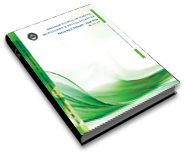ความเป็นไปได้ของการใช้กากตะกอนเคมีจากการผลิตน้ําประปาร่วมกับปูนซีเมนต์ในซีเมนต์ มอร์ต้าและอิฐบล็อกประสาน
Keywords:
ปูนซีเมนต์, ซีเมนต์มอร์ต้า, กากตะกอนเคมี, อิฐบล็อกประสาน, cement, cement mortars, chemical sludge, soil cement blockAbstract
บทคัดย่อ
งานวิจัยนี้เป็นการศึกษาความเป็นไปได้ในการนํากากตะกอนเคมีจากกระบวนการผลิตน้ําประปามาใช้เป็นวัสดุทดแทนปูนซีเมนต์ในซีเมนต์มอร์ต้าและอิฐบล็อกประสาน องค์ประกอบทางเคมีที่สําคัญของกากตะกอนเคมีที่ใช้ คือ SiO2 และ Al2O3 ซึ่งคล้ายกับองค์ประกอบทางเคมีของปูนซีเมนต์ ผลศึกษาการใช้ตะกอนเคมีทดแทนปูนซีเมนต์ในการทําซีเมนต์มอร์ต้า พบว่ากําลังรับแรงอัดของซีเมนต์มอร์ต้าที่ผสมกากตะกอนเคมีสามารถใช้ในงานก่อและฉาบได้ ซีเมนต์มอร์ต้าที่ผสมกากตะกอนเคมีนี้สามารถใช้งานที่ไม่ใช้โครงสร้างได้ เช่น ผนังฐานรากและผนังรับน้ําหนักตําแหน่งภายนอกอาคาร เป็นต้น ค่าการดูดซึมน้ําของซีเมนต์มอร์ต้าสูงขึ้นตามการเพิ่มสัดส่วนของกากตะกอนเคมี อิฐบล็อกประสานที่ผสมกากตะกอนเคมีร้อยละ 10-30 ผ่านมาตรฐานของสถาบันวิจัยวิทยาศาสตร์และเทคโนโลยีแห่งประเทศไทย (TISTR) ชั้นคุณภาพ ก ที่มีความแข็งแรงและทนการกัดกร่อนของน้ําได้ดี ส่วนอิฐบล็อกประสานที่ผสมกากตะกอนเคมีร้อยละ 40-50 ผ่านมาตรฐานชั้นคุณภาพ ข ที่มีความแข็งแรงและทนการกัดกร่อนของน้ําได้ดีปานกลาง อิฐบล็อกประสานที่ผสมกากตะกอนเคมีร้อยละ 70 ผ่านมาตรฐานคอนกรีตบล็อกไม่รับน้ําหนัก ผลการศึกษาที่ได้ทําให้ทราบว่ากากตะกอนเคมีจากการผลิตน้ําประปาสามารถใช้ทดแทนปูนซีเมนต์การค้าในงานก่อและฉาบได้ และการใช้กากตะกอนในอิฐประสานที่ร้อยละ 10-30 มีความเป็นไปได้อย่างมากในการนําไปใช้จริงต่อไป
คําสําคัญ : ปูนซีเมนต์, ซีเมนต์มอร์ต้า, กากตะกอนเคมี, อิฐบล็อกประสาน
Abstract
This research investigated the possible use of chemical sludge from a water treatment system as a cement-substitute material in cement mortar and soil cement blocks. The major composition of the chemical sludge used in this study was SiO2 and Al2O3, which is similar to the chemical composition of cement. The result of substituting chemical sludge for cement in the cement mortar, showed that compressive strength of cement mortar mixed with chemical sludge could be used in brickwork and plastering. This sludge-mixed mortar was suitable for non-structural work, e.g., foundation wall and bearing wall outside the building. Water absorption was increased by an increasing the chemical sludge ratio. The soil cement block when mixed with 10-30% and 40-50% of chemical sludge met the “ก” and “ข” standards of the Thailand Institute of Scientific and Technological Research (TISTR) for having a good strength and water resistance and moderate strength and water resistance respectively. Soil cement blocks with 70% chemical sludge could only be used in non-structural work. These results suggest that chemical sludge from water treatment can be a substitute for commercial cement for brickwork and plastering and that the use of 10-30% chemical sludge for making soil cement block has a high potential for real application.
Keywords : cement, cement mortars, chemical sludge, soil cement block
Downloads
How to Cite
Issue
Section
License
Each article is copyrighted © by its author(s) and is published under license from the author(s).










